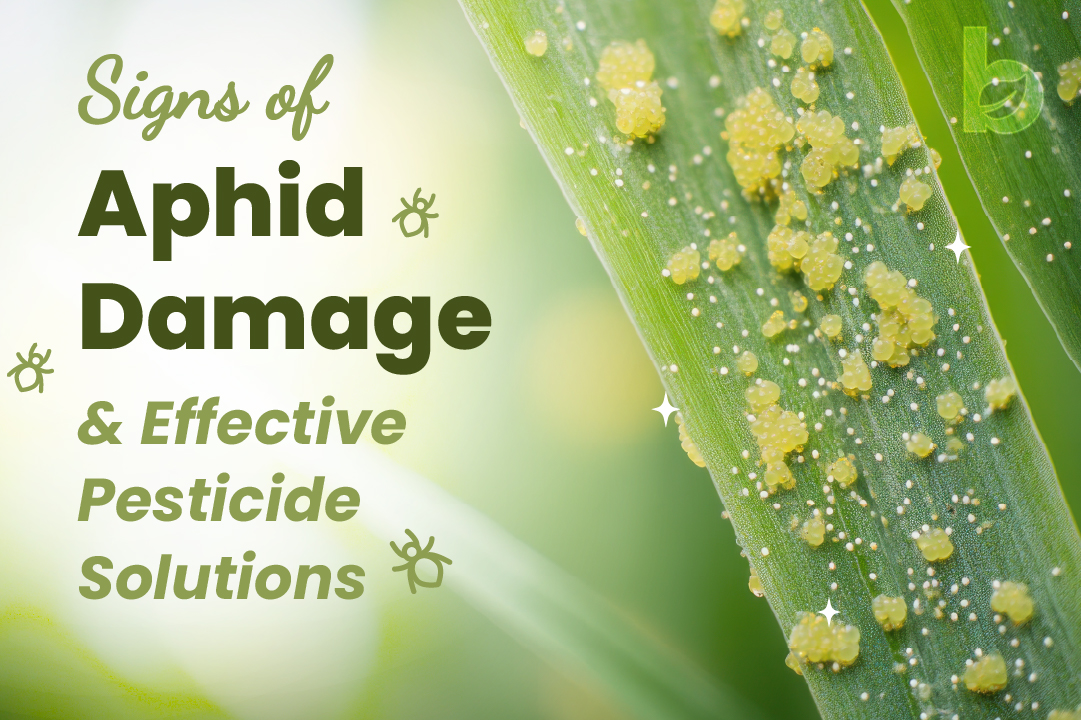
Aphids are one of the most common and destructive garden pests, silently causing damage to plants while multiplying rapidly. These tiny insects feed on plant sap, leading to stunted growth, leaf deformation, and even disease transmission. If left unchecked, aphids can significantly impact the health of your garden.
This blog will help you recognize the signs of aphid damage, understand different types of aphids, and explore effective pesticide solutions to control them.
Recognizing Aphid Damage: Early Warning Signs
Aphids attack plants in large colonies, often going unnoticed until the damage is severe. Identifying the signs early can prevent major infestations.
1. Curling and Distorted Leaves
Aphids inject toxins into the plant as they feed, causing leaves to curl, twist, or become deformed. This is particularly noticeable in young shoots and tender leaves.
2. Sticky Residue (Honeydew) & Sooty Mold
Aphids excrete a sugary substance called honeydew, which coats leaves and attracts sooty mold—a black, powdery fungus that can interfere with photosynthesis.
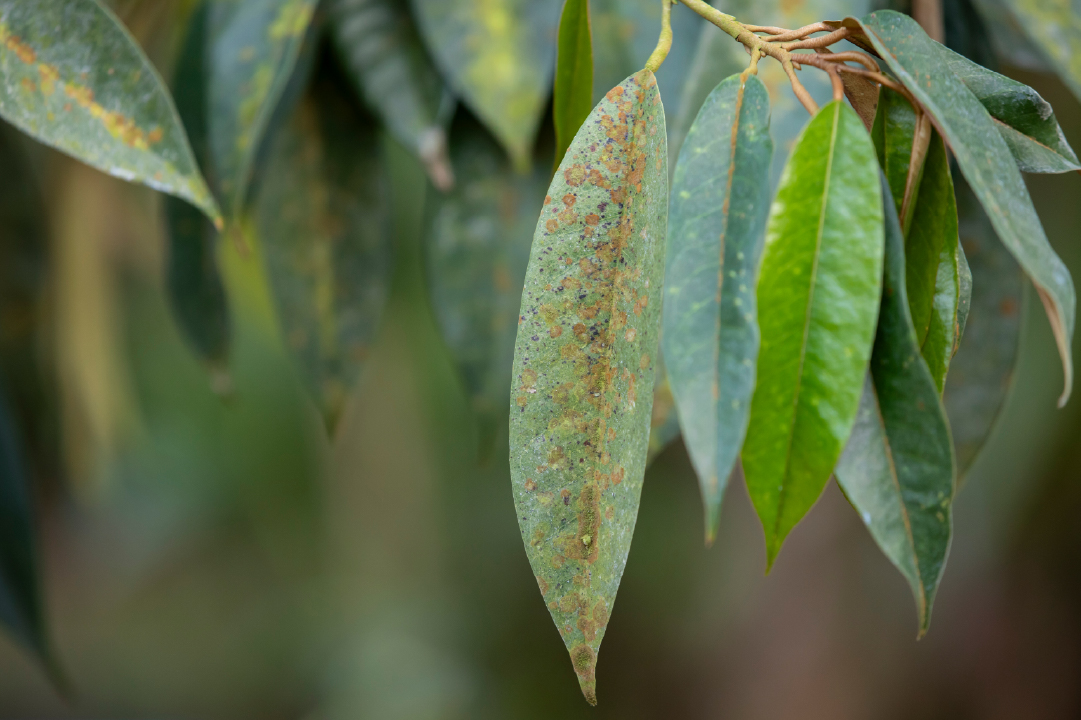
3. Stunted Growth & Weak Plants
Since aphids drain essential nutrients from plants, affected plants often exhibit slow or stunted growth, reduced flowering, and overall poor health.
4. Yellowing & Wilting Leaves
Excessive feeding weakens plants, leading to leaf yellowing, wilting, and premature leaf drop. This can be devastating for crops and ornamental plants alike.
5. Ant Activity on Plants
Ants are attracted to aphid honeydew and may protect aphid colonies from natural predators, making the infestation worse.
6. Presence of Aphid Colonies
Inspect the undersides of leaves and plant stems for small, soft-bodied insects in green, black, yellow, or pink hues. These clusters indicate an ongoing aphid problem.
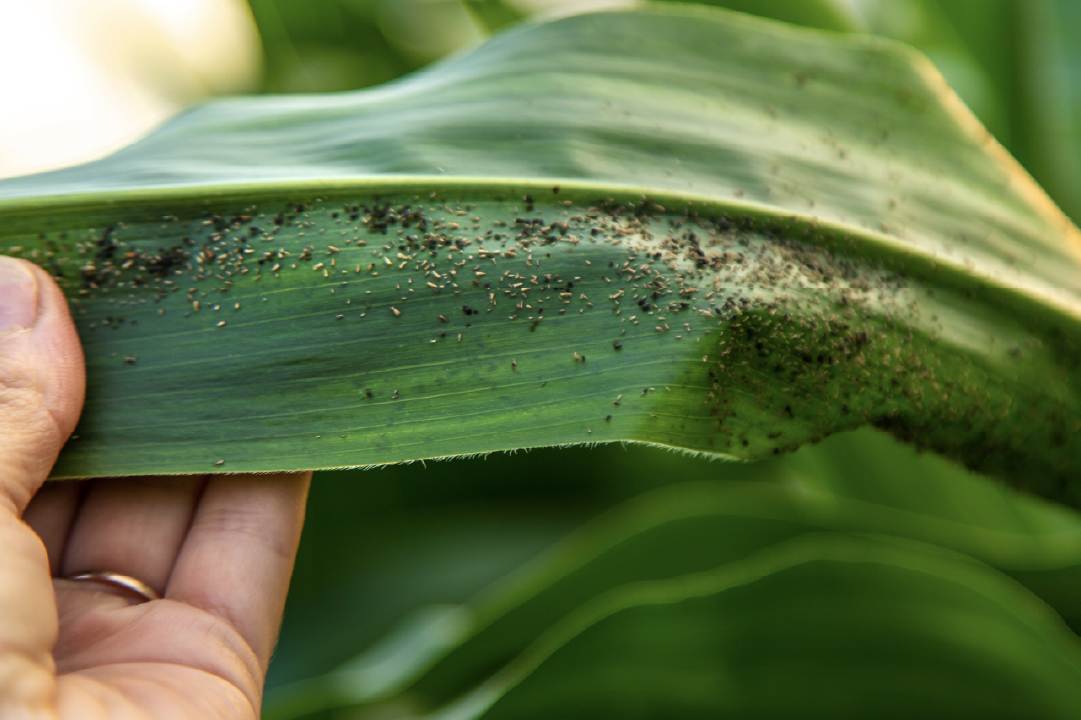
Understanding Different Types of Aphids
There are various types of aphids, each targeting specific plants. Identifying them can help determine the best control strategy.
1. Green Peach Aphids (Myzus persicae)
These green aphids attack a wide range of plants, including peaches, tomatoes, and potatoes. They are known to transmit plant viruses.
2. Black Bean Aphids (Aphis fabae)
Found on beans, beets, and sunflowers, these dark-colored aphids often cluster on the stems and undersides of leaves.
3. Cabbage Aphids (Brevicoryne brassicae)
A major pest for cabbage, kale, and other brassicas, cabbage aphids are grayish-green with a powdery coating.
4. Cotton Aphids (Aphis gossypii)
These aphids infest cotton, melons, and citrus plants, reducing crop yields significantly.
5. Rose Aphids (Macrosiphum rosae)
A common pest on roses, these aphids damage buds and young shoots, affecting flower development.
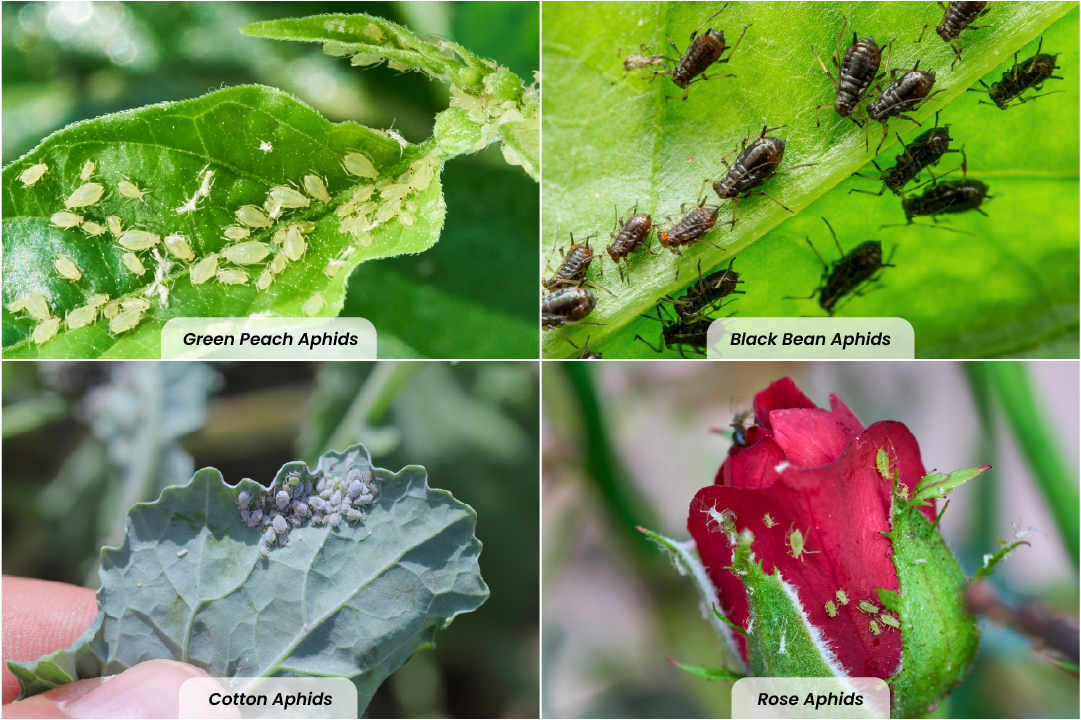
Effective Pesticide Solutions for Aphid Control
While natural predators like ladybugs help manage aphid populations, severe infestations often require additional treatment. Here are some effective solutions:
1. Neem Oil
Neem oil disrupts aphid growth and reproduction. Mix neem oil with water and apply it to affected plants, ensuring good coverage on leaves and stems.
2. Insecticidal Soap
Insecticidal soap kills aphids on contact by breaking down their outer layer. It’s a safe option for organic gardeners and should be applied in the early morning or evening.
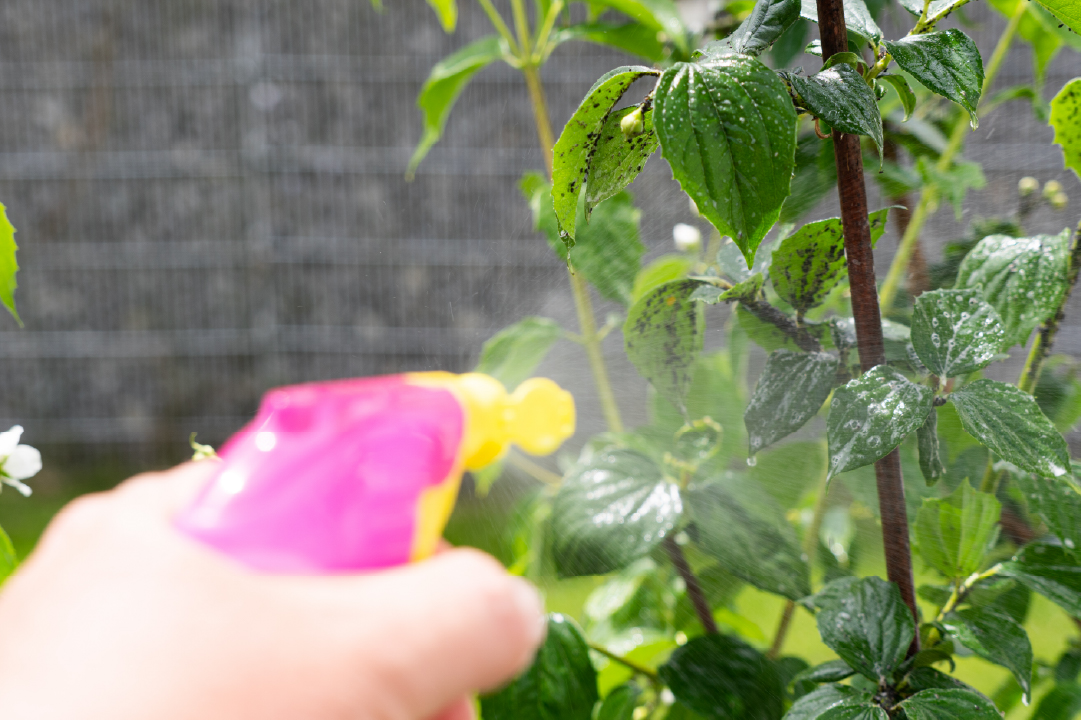
3. Horticultural Oils
Horticultural oils smother aphids and their eggs. They are best used during dormant periods or early infestations.
4. Systemic Insecticides
For severe infestations, systemic insecticides like Imidacloprid can be used. These pesticides are absorbed by the plant, killing aphids when they feed on plant sap.
5. DIY Remedies
A homemade garlic or chili spray can repel aphids naturally. Mix crushed garlic or chili with water and a drop of dish soap, then spray on plants.
By identifying the types of aphids early and using the right pesticide solutions, you can effectively protect your plants from damage. Whether you choose organic methods or targeted pesticides, consistent monitoring and action will ensure a healthy and aphid-free garden!
DeHaat Bageecha Health 360: A Safe & Effective Aphid Control Solution
Looking for a natural and powerful aphid control solution? DeHaat Bageecha Health 360 offers a 100% plant-based formula that protects your garden from aphid infestations without harming beneficial insects.
Why Choose Health 360?
- Eco-friendly & Chemical-free – Safe for your plants, pets, and the environment.
- Fast-acting Formula – Effectively controls aphids, mealybugs, and other bugs.
- Easy to Use – Simply spray on affected plants for lasting protection.
Say goodbye to aphids and keep your plants thriving with DeHaat Bageecha Health 360 – because your garden deserves the best care!
FAQs: Everything You Need to Know About Aphid Control
Q1: Can aphids kill my plants?
Aphids rarely kill plants outright, but they weaken them by draining essential nutrients, making them susceptible to diseases and stunted growth.
Q2: What is the best time to spray for aphids?
Early morning or late evening is ideal, as beneficial insects like bees are less active, reducing the impact on pollinators.
Q3: Do aphids spread plant diseases?
Yes, aphids are known vectors of plant viruses, transmitting diseases that can severely impact crops and flowers.
Q4: Can I prevent aphids without pesticides?
Yes! Encouraging natural predators, using companion planting (like marigolds and garlic), and regularly inspecting plants can help prevent infestations.
Q5: How do I know if my pesticide treatment is working?
Reduced aphid numbers, healthier new growth, and fewer signs of honeydew or sooty mold indicate effective treatment.



